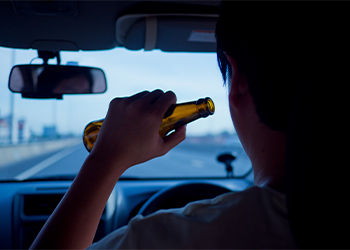Common Misconceptions About DUIs
Oct. 25, 2024
 Driving Under the Influence (DUI) is a serious offense that can have significant consequences. However, many people hold misconceptions about DUIs that can lead to misunderstandings and poor decisions.
Driving Under the Influence (DUI) is a serious offense that can have significant consequences. However, many people hold misconceptions about DUIs that can lead to misunderstandings and poor decisions.
At Life Law, we aim to clear up these myths and provide clarity. Our experienced attorneys serve clients in Raleigh, North Carolina, Nags Head, Charlotte, Asheville, and Wilmington. With years of experience in personal injury cases across North Carolina, we work for our community with compassion and professionalism.
Common Misconceptions About DUIs
A Driving Under the Influence (DUI) charge typically occurs when an individual operates a motor vehicle while impaired by alcohol or drugs, resulting in a blood alcohol concentration (BAC) above the legal limit.
This offense not only jeopardizes the safety of the driver but also poses significant risks to passengers, pedestrians, and other road users. The legal consequences of a DUI can include fines, license suspension, and even imprisonment, highlighting the gravity of this offense.
Despite the serious ramifications of DUI, many individuals hold common misconceptions that can influence their understanding and response to such charges. These include:
Myth 1: You Can't Get a DUI During the Day
Many people believe that DUIs only occur at night. However, law enforcement officers patrol the roads 24/7, and impairment can happen at any time. Whether it's an early morning after a night of drinking or mid-afternoon after taking medication, driving under the influence is always risky.
Myth 2: Only Alcohol Can Lead to a DUI
Alcohol is the most commonly associated substance with DUI charges, but it's not the only one. Prescription medications, over-the-counter drugs, and illegal substances can also impair your ability to drive. Even substances that are legal to consume can result in a DUI if they impair your driving.
Myth 3: You Have to Be Over the Legal Limit to Get a DUI
Many believe that you can only get a DUI if your blood alcohol concentration (BAC) is over the legal limit of 0.08%. However, you can be charged with DUI even if your BAC is below 0.08% if the officer believes your driving is impaired. Other factors, such as erratic driving, can also lead to a DUI charge.
Myth 4: Refusing a Breathalyzer Test Will Help You Avoid a DUI
Refusing a breathalyzer test might seem like a way to avoid a DUI, but it can lead to severe consequences. In North Carolina, refusing a breathalyzer test can result in an automatic license suspension for one year. It's essential to understand your rights and the implications of refusing a test.
Myth 5: You Can Only Get a DUI in a Car
DUIs aren't limited to cars. You can receive a DUI while operating any motor vehicle, including motorcycles, boats, and even bicycles in some jurisdictions. The key factor is whether you're operating a vehicle while impaired.
Myth 6: Once You Sober Up, You're Safe to Drive
Even if you feel sober, alcohol and other substances can remain in your system and impair your driving abilities. It's essential to wait an appropriate amount of time after consuming any impairing substances before getting behind the wheel.
Myth 7: A DUI Charge Will Automatically Result in a Conviction
Being charged with a DUI does not guarantee a conviction. There are many defenses available, and an experienced attorney can help you explore your options. At Life Law, our skilled negotiators and litigators will fight for the best possible outcome for your case.
DUI Laws in North Carolina
North Carolina has stringent DUI laws to protect its citizens. The legal limit for BAC is 0.08%, but drivers can be charged with a lower BAC if impaired. Penalties for a DUI in North Carolina can include fines, license suspension, community service, and even jail time. The severity of the penalties depends on factors such as BAC level, prior offenses, and whether there were any aggravating factors like causing an accident.
North Carolina Implied Consent Law
North Carolina operates under an "implied consent" law, meaning that by driving on public roads, you consent to chemical testing if suspected of DUI. Refusing a test can result in an automatic license suspension for one year, regardless of the outcome of the DUI charge.
Zero Tolerance for Underage Drivers
For drivers under 21, North Carolina has a zero-tolerance policy. Any detectable alcohol in the system of an underage driver can result in a DUI charge. This strict policy aims to discourage underage drinking and driving.
Aggravating and Mitigating Factors
North Carolina law considers both aggravating and mitigating factors when determining DUI penalties. Aggravating factors include high BAC levels, reckless driving, and causing an accident. Mitigating factors, such as a clean driving record or voluntary participation in substance abuse programs, can potentially reduce penalties.
DUI Attorneys in Raleigh, North Carolina
At Life Law, our priority is to provide expert legal representation for DUI cases in Raleigh, North Carolina, Nags Head, Charlotte, Asheville, and Wilmington. With skilled negotiators, experienced litigators, and compassionate counsel, we're committed to achieving the best possible outcome for your case. If you or someone you know is facing a DUI charge, reach out to us for the support and guidance you need. Call today to discuss your case and explore your options.
